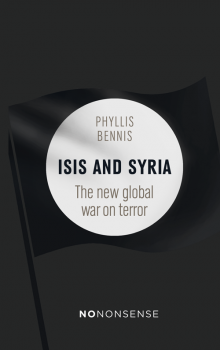 In this short but timely introduction, leading US anti-war academic and activist Phyllis Bennis examines the rapid growth of Islamic State and the rise of the new global war on terror waged by the US and its allies in the Middle East.
In this short but timely introduction, leading US anti-war academic and activist Phyllis Bennis examines the rapid growth of Islamic State and the rise of the new global war on terror waged by the US and its allies in the Middle East.
Written in a question/answer format, Bennis addresses a series of questions including: What are the origins of ISIS? What was behind the US decision to escalate military involvement in the Middle East in 2014? and: Isn’t military force necessary when faced with such a violent force as ISIS?
Her most valuable contribution is to underline the connection between Western military involvement and expanding radicalism, tracing the rise of ISIS as a response to the US/UK invasion and occupation of Iraq in 2003.
She cogently analyses how the toppling of Ba’ath leader Saddam Hussein in favour of a Shi’a (and US-backed) government created a lot of resentment amongst disenfranchised Sunni communities and ex-military leaders who then started bearing the brunt of ethnic cleansing. Their subsequent support for Sunni-affiliated ISIS strengthened the Islamic State’s position in both Iraq and Syria.
During the 2011 protests in Syria, ISIS first appeared in opposition to Bashar Al-Assad’s Alawite (Shi’a) regime, later turning violently against the other opposition groups. Bennis carefully notes how the sectarian split between Sunni and Shi’a is far more about power and identity politics than religion: the ultimate goal of Iraq’s government is not to impose its interpretation of Islamic practices but to preserve the United States’ absolute power in the region.
She also analyses the complex web of relations in the Middle East that have also contributed to the rise of ISIS, including the struggle for the control of oil in the Arab Gulf and the political tensions between Israel and Iran. Notably, she examines the crucial role of Saudi Arabia – the United States’ most important financial partner and the recipient of tens of billions of dollars’ worth of arms each year.
Saudi Arabia’s Wahhabi brand of Sunni Islam has led the country to actively finance ISIS as part of its anti-Shi’a agenda in the Middle East. This, Bennis notes, has made ISIS the ‘richest insurgent in the world’.
Obama’s 2014 decision to escalate military warfare in Iraq is not only causing more civilian deaths but is also playing directly into ISIS’s propaganda tactics, gaining them wider support. So what are Bennis’ alternatives to war and occupation? In six points, she proposes: stop the airstrikes; withdraw US troops from Iraq and Syria; stop flooding the region with arms; reverse the US law that criminalises conflict resolution with blacklisted organisations like the Turkish Kurdish insurgent group, the PKK; return diplomacy to centre stage; support local ceasefires; and generate pressure for new and inclusive negotiations to end the civil war.
In a last-minute postscript about the 13 November 2015 attacks in Paris, Bennis warns against the Bush-type response waged in 2001, pointing out that: ‘it doesn’t have to be that way in Paris.... Maybe they can get it right.’ But president Hollande’s reaction and the UK’s subsequent decision to join France’s efforts in bombing ISIS-controlled areas in Syria, like Raqqa, is a clear signal that the lesson still hasn’t been learned today.


